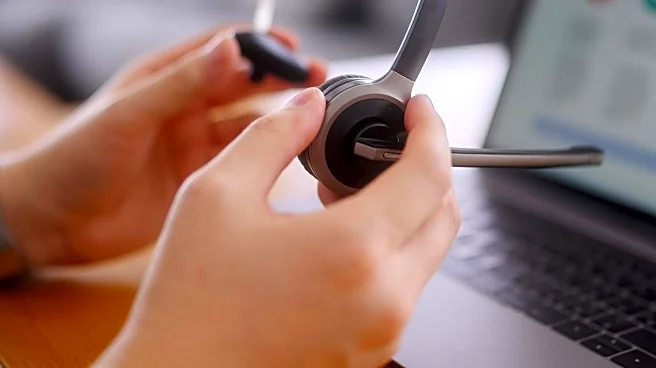What's Happening?
Philips has announced a strategic partnership with Optum Healthcare to integrate its advanced cardiac ambulatory monitoring solutions, including Mobile Cardiac Telemetry (MCOT) and Philips Extended Holter (ePatch), into the Optum network. This collaboration aims to facilitate earlier detection of cardiac conditions and support timely clinical interventions for Optum's 3.4 million members across 22 U.S. states. The partnership expands access to Philips' MCOT and ePatch solutions across various healthcare plans, empowering clinicians with insights to accelerate cardiac care while allowing patients to maintain their daily routines. The integration is expected to streamline patient referral processes, enhance diagnostic insights, and ensure seamless care coordination, ultimately improving patient outcomes.
Why It's Important?
The partnership between Philips and Optum is significant as it addresses the growing need for advanced cardiac monitoring solutions in the U.S. healthcare system. By providing earlier detection and timely intervention, the collaboration has the potential to reduce the burden of cardiac diseases, which are a leading cause of mortality in the country. The integration of Philips' technology into Optum's network can lead to improved patient compliance and more informed clinical decision-making, benefiting patients, providers, and payers alike. This initiative represents a proactive approach to managing chronic conditions and could set a precedent for future collaborations in the healthcare industry.
What's Next?
As Philips becomes a preferred in-network provider, the company is expected to continue expanding its reach and impact within the U.S. healthcare system. The collaboration may prompt other healthcare providers to adopt similar technologies, further enhancing cardiac care across the nation. Stakeholders, including primary care physicians and cardiologists, are likely to leverage the actionable data provided by Philips' monitoring services to build stronger collaboration across care teams. This could lead to improved patient outcomes and potentially influence healthcare policies related to cardiac care.










